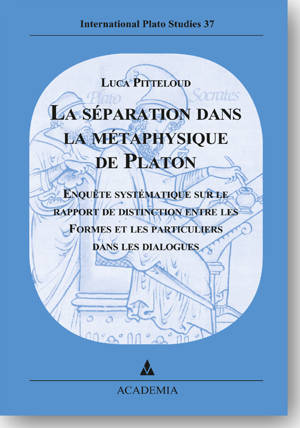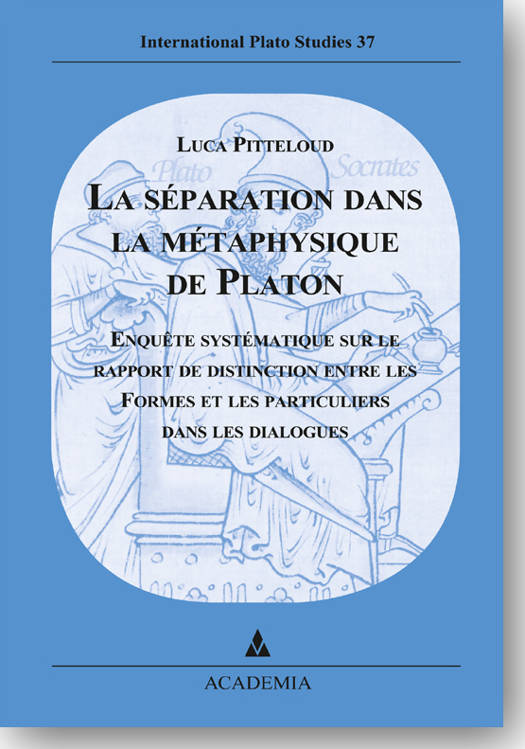
- Afhalen na 1 uur in een winkel met voorraad
- Gratis thuislevering in België vanaf € 30
- Ruim aanbod met 7 miljoen producten
- Afhalen na 1 uur in een winkel met voorraad
- Gratis thuislevering in België vanaf € 30
- Ruim aanbod met 7 miljoen producten
Zoeken
La séparation dans la métaphysique de Platon
Enquête systématique sur le rapport de distinction entre les Formes et les particuliers dans les dialogues
Luca Pitteloud
€ 50,45
+ 100 punten
Omschrijving
The purpose of this book is to examine how Plato distinguishes the sensible from the intelligible in the dialogues. In this perspective, the main elements of the hypothesis of Forms will be analyzed in the context of an aporetic reading of the dialogues. While it is true that a separation between the sensible and the intelligible constitutes a problem for Plato, a detailed reading of the dialogues (Phaedo, Phaedrus, Republic, Symposium, Parmenides, Sophist and Timaeus) will show that such a distinction cannot be described as a separation between two worlds, but rather as the differentiation between two degrees of being, with the sensible objects being ultimately characterized as appearances of the Forms in the Receptacle. Such a characterization will be the result of a long dialectical development, which aims to ensure an ontological status to the sensible as an intermediary between being and non-being. Book's language is French.
Specificaties
Betrokkenen
- Auteur(s):
- Uitgeverij:
Inhoud
- Aantal bladzijden:
- 310
- Taal:
- Frans
- Reeks:
- Reeksnummer:
- nr. 37
Eigenschappen
- Productcode (EAN):
- 9783896657152
- Uitvoering:
- Hardcover
- Afmetingen:
- 159 mm x 236 mm
- Gewicht:
- 630 g

Alleen bij Standaard Boekhandel
+ 100 punten op je klantenkaart van Standaard Boekhandel
Beoordelingen
We publiceren alleen reviews die voldoen aan de voorwaarden voor reviews. Bekijk onze voorwaarden voor reviews.







